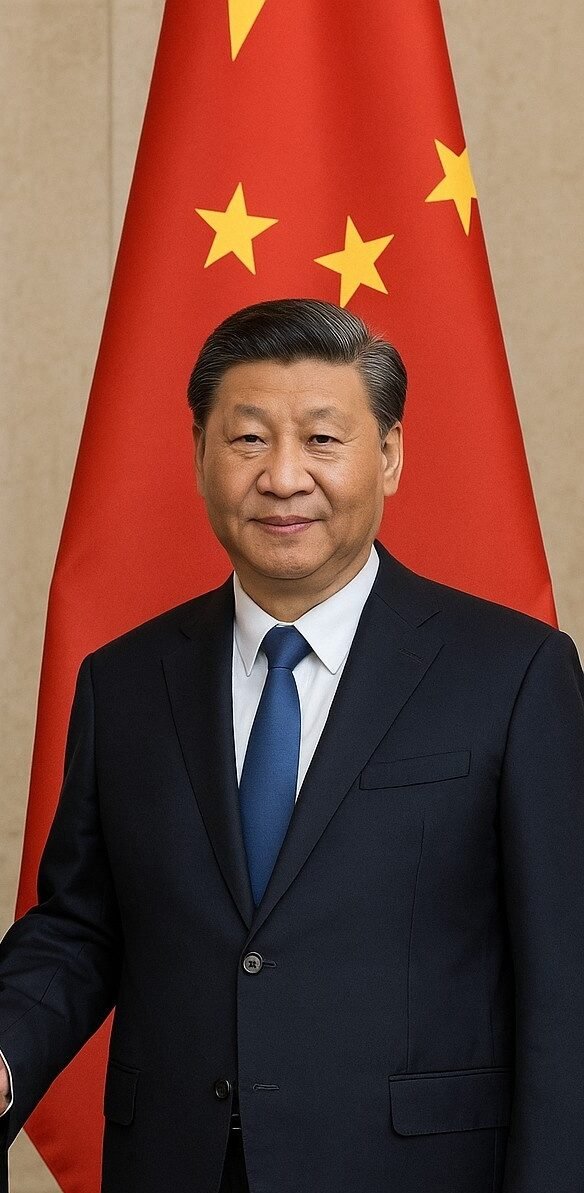Xi Calls for Collective Resistance to Global “Bullying”
Chinese President Xi Jinping used the opening session of the Shanghai Cooperation Organisation (SCO) Summit 2025 in Tianjin on Monday to send a pointed message against what he described as “bullying behaviour” in the international order. Addressing a gathering that included Russian President Vladimir Putin and Indian Prime Minister Narendra Modi, Xi stressed that member states must work together to reject “Cold War mentality, camp confrontation, and bullying behaviour” that threaten global peace and development.
“In a turbulent and transforming world, we must uphold fairness, justice, and the Shanghai spirit,” Xi declared. “Our duty is to strengthen multilateral cooperation and resist pressures that undermine sovereign rights and balanced growth.”
Summit Marked by Renewed Unity Among India, Russia, and China
The summit, which began on August 31, spotlighted the emerging alignment among India, Russia, and China at a time of heightened tension with the United States under President Donald Trump. Following Washington’s decision to impose steep tariffs, including a 50 percent levy on Indian oil imports from Russia, Beijing and Moscow rallied behind New Delhi, denouncing the move as “economic coercion.”
The convergence of positions was seen as a symbolic moment in trilateral cooperation. Xi, in a notable reference, said it was vital for the “elephant and the dragon” — India and China — to join hands in shaping a stable future. Observers pointed out that this sentiment marked a fresh thaw in relations between the two Asian giants after years of strained ties.
Trade Disputes Drive Growing Divide With Washington
The sharp rhetoric comes against the backdrop of a prolonged trade conflict between Washington and Beijing, where tariffs exceeded 100 percent during Trump’s first term. Although an interim agreement was reached, disputes resurfaced this year as the U.S. extended penalties to other countries, including India, for purchasing Russian oil amid the ongoing Ukraine war.
Trump’s decision sparked pushback not only from China and Russia but also from several developing economies who see Washington’s measures as undermining the principle of free trade. In Beijing’s words, such tariffs represent “overwhelming bullying” that could disrupt global supply chains.
Parallel U.S. Efforts With Russia and Ukraine
Despite escalating economic disputes, Trump has continued efforts to mediate between Moscow and Kyiv. Last month, he hosted Putin in Alaska, followed by talks with Ukrainian President Volodymyr Zelensky in Washington. While no breakthrough was reported, the meetings signaled Washington’s intent to remain directly engaged in resolving the war.
Nevertheless, both Russia and China have remained cautious of U.S. overtures, underscoring that economic confrontation undermines diplomatic credibility. Putin, speaking at the summit, echoed Xi’s call to counter external “pressures” and praised the SCO as an effective platform for multipolar cooperation.
India at the Centre of Competing Agendas
For India, the SCO summit became an arena for balancing complex interests. While Prime Minister Modi reaffirmed New Delhi’s commitment to multipolarity and multilateralism, his government has had to navigate strained relations with Washington following the tariff hike. At the same time, India’s closer energy partnership with Russia and the easing of tensions with China suggest a gradual tilt toward deeper Eurasian cooperation.
Beijing highlighted Wang Yi’s visit to New Delhi earlier in August as evidence of warming ties. Both sides emphasised the importance of coordination within multilateral frameworks to withstand what they termed “severe challenges” to fair trade and regional stability.
SCO’s Expanding Role in Global Diplomacy
The 2025 SCO Summit featured participation from its eight permanent members — China, India, Russia, Pakistan, Iran, Kazakhstan, Kyrgyzstan, Tajikistan, and Uzbekistan — alongside Belarus, which joined as a new member this year. With 16 additional observer states and dialogue partners, the organisation continues to grow as a platform that seeks to provide alternatives to Western-led forums.
Xi closed his address by urging leaders to “seize the momentum of cooperation” and ensure that the SCO remains a force for fairness in a world “caught between turbulence and transformation.” His remarks, coupled with visible India-Russia-China coordination, underscored how economic disputes with Washington are driving a recalibration of global partnerships.
Conclusion
Xi Jinping’s call to reject “bullying behaviour” at the SCO Summit reflects a broader realignment in global politics, where regional powers are increasingly uniting to challenge unilateral moves by the United States. With India’s balancing act, Russia’s strategic depth, and China’s assertive diplomacy, the summit reinforced the SCO’s rising significance as a counterweight in shaping the international order.








